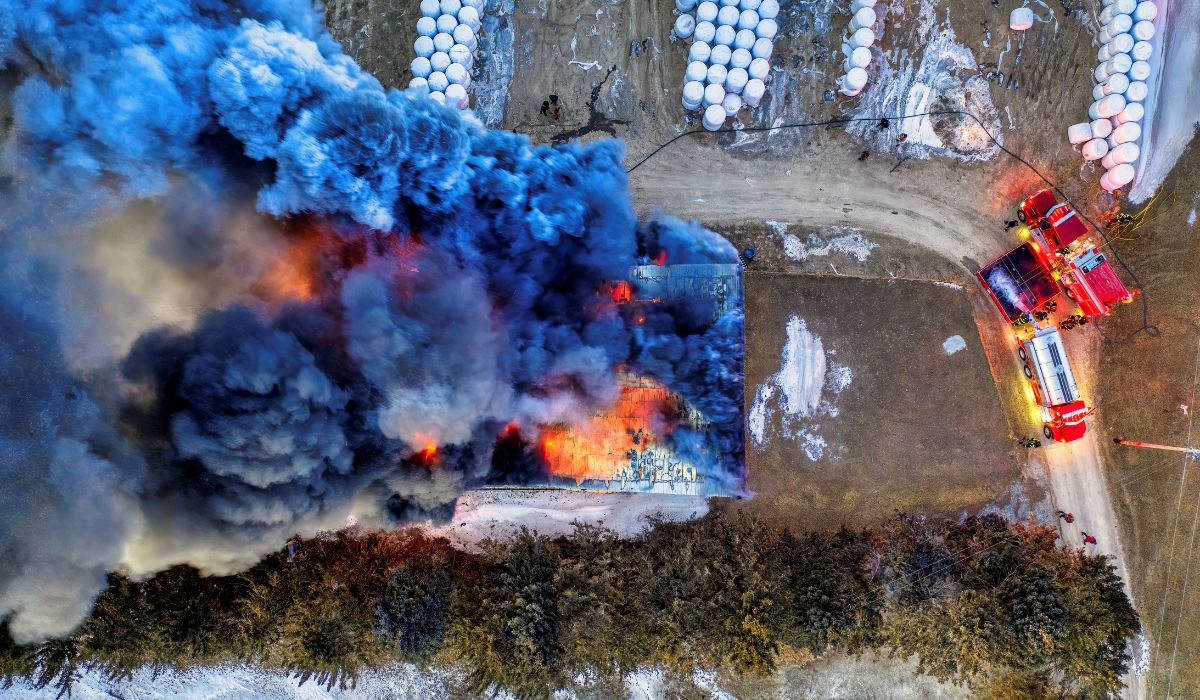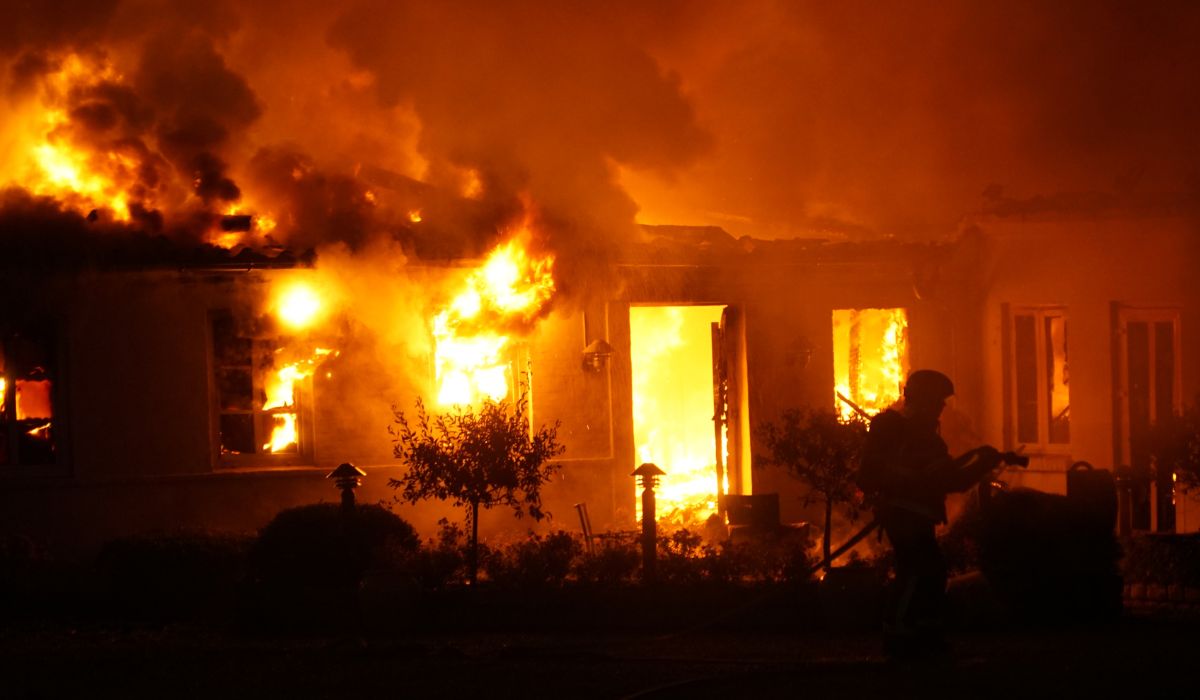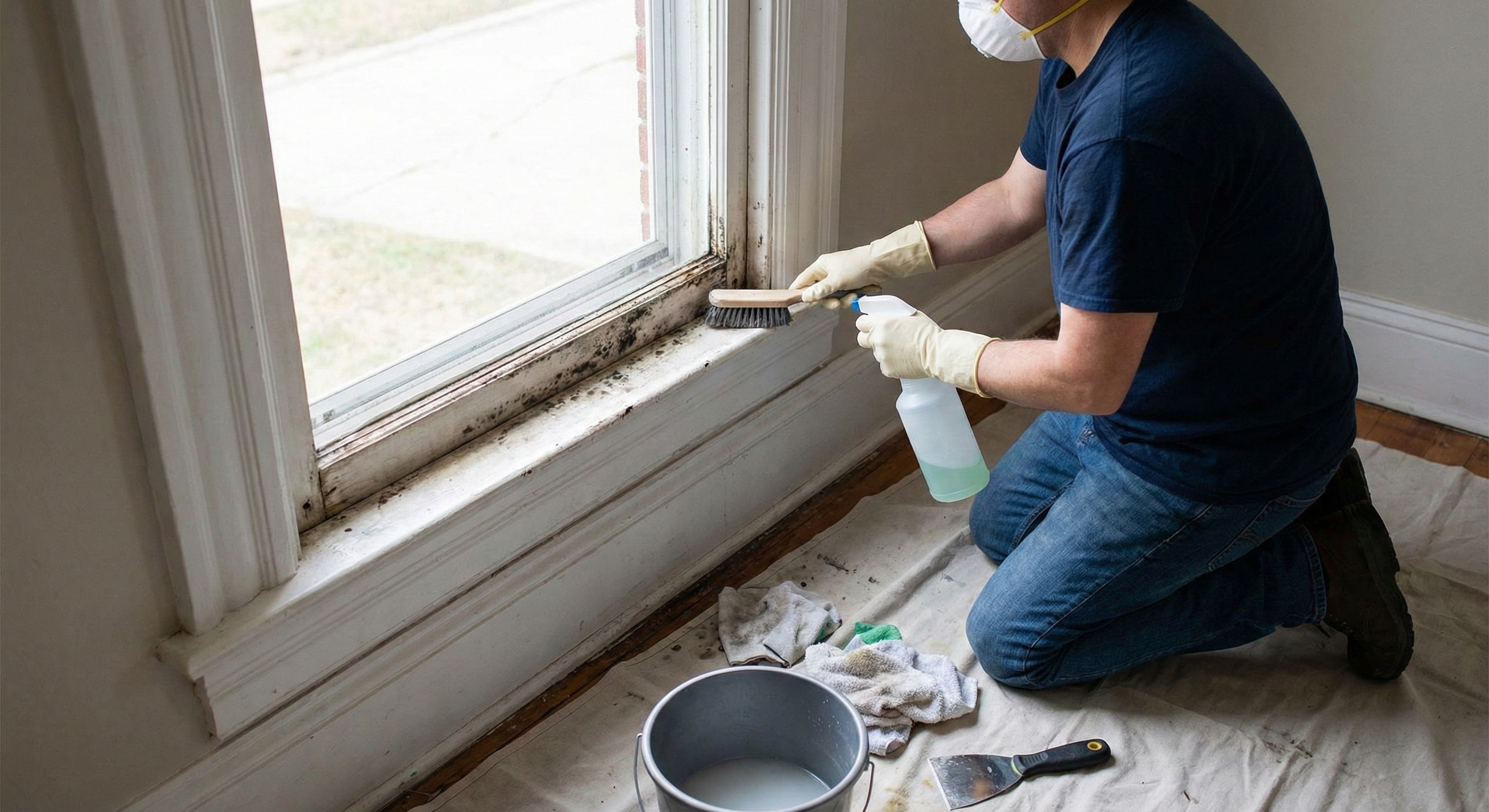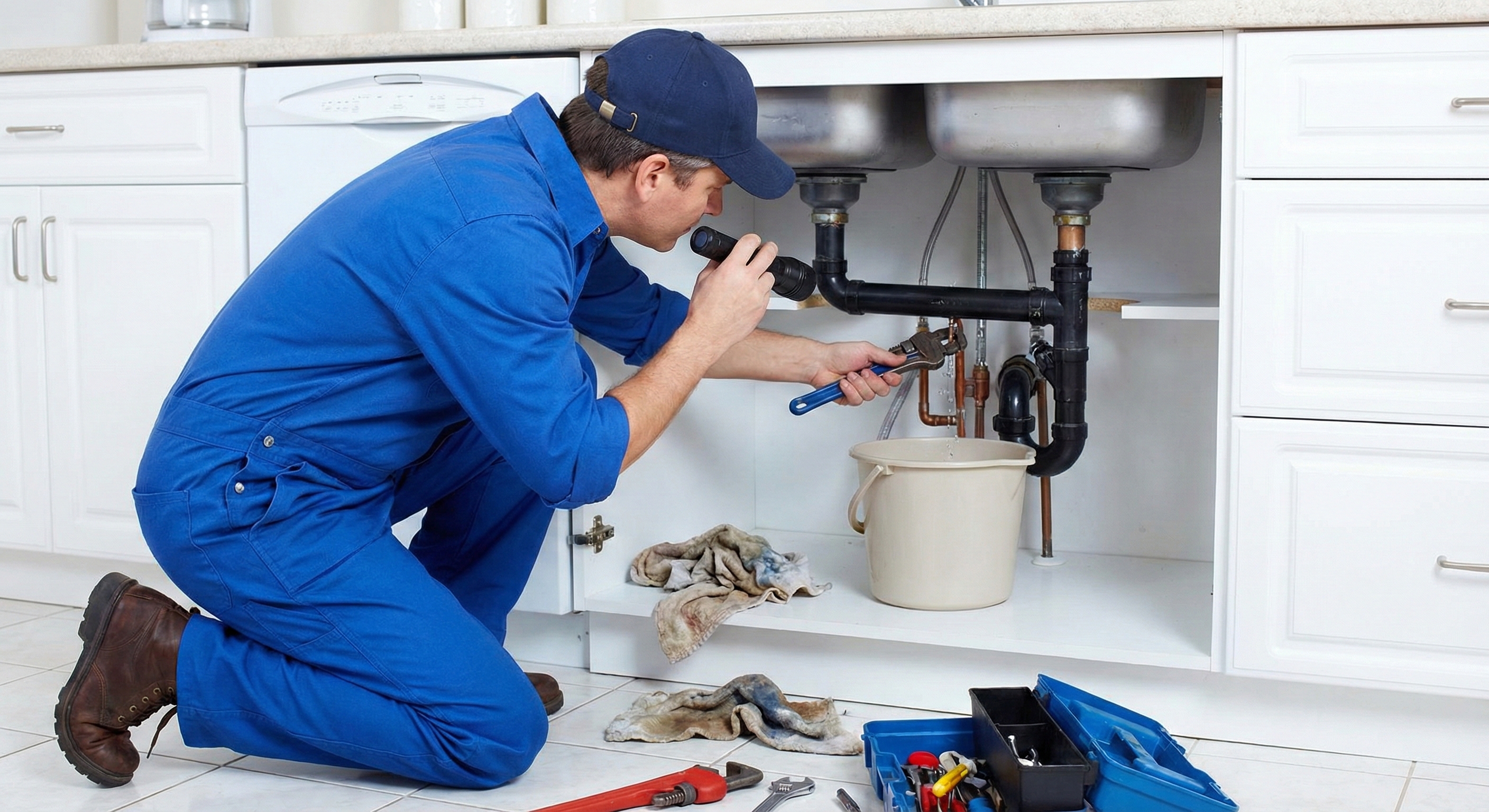Top Causes of House Fires in Orange County, CA
House fires can happen fast. In Orange County, many homes sit in warm, dry southern california neighborhoods with lots of vegetation and wind. This climate can turn a small flame into a big fire in minutes.
In this guide, we will talk about the Top Causes of House Fires in Orange County, how they start, and how you can keep your family safe. You will also learn when to call an emergency number, how insurance fits in, and how local pros can help you recover.

Cooking and Kitchen Fires
Why the Kitchen Is So Dangerous
The kitchen is one of the biggest fire danger spots in any home. Most house fires start here, often when people walk away from food on the stove.
- Grease gets too hot and starts combustion (that means it starts to burn).
- A towel or paper near a burner touches the flame.
- A pan boils over and hits the electrical wiring or hot surface.
When this happens, a small spark can turn into a large hazard in seconds.
Simple Kitchen Fire Safety Tips
To lower your risk:
- Stay in the kitchen when you cook. If you need to leave, turn the stove off.
- Keep paper, cloth, plastic, and wood spoons away from the burner.
- Use lids to cover small pan fires and turn off the heat.
- Keep kids and pets out of the cooking zone around the stove.
If a fire gets too big, get out and call 911. Let a firefighter handle it. Your safety matters more than the glass dishes or the pan.
Electrical Wiring and Appliance Problems
Old Wires and Overloaded Plugs
Many homes in the county have older electrical wiring. When wires are old, broken, or not installed right, they can overheat and start a fire.
Common problems:
- Too many things plugged into one outlet
- Cheap power strips that cannot handle the load
- Worn cords under rugs, furniture, or construction materials
These can cause a spark, or ignition, inside the wall. You may not see it until smoke appears.
How to Make Your Home Safer
To make your home safer:
- Have a licensed electrician check your roof spaces and panels if your home is older.
- Replace cords with cracks or exposed metal.
- Do not overload outlets with space heaters and big tools.
If lights flicker, outlets feel hot, or you smell burning, call an expert right away. This kind of problem is a real hazard.
Heating, Chimneys, and Candles
Chimneys and Embers
Some homes in Orange County use fireplaces on cool winter nights or during rain storms. A dirty chimney can trap soot and hot ember pieces. Those embers can float out and land on your roof, dry leaves, or nearby plant life.
If the chimney does not have a mesh screen, embers can also blow into the room and hit carpet, curtains, or wood furniture.
Candles, Space Heaters, and Open Flame
Candles look nice. Space heaters feel warm. But both use open flame or hot surfaces that can start combustion.
Fire safety tips:
- Keep candles away from curtains, paper, and soft items.
- Blow candles out when you leave the room.
- Keep space heaters three feet away from anything that can burn.
- Use heaters with automatic shut-off.
When you use a fireplace, have your chimney cleaned often and install a mesh screen over the opening.
Wildfires and Outdoor Fire Hazards
Wildfire Risk in Southern California
Orange County is part of southern california, where wildfires are a serious problem. Dry brush and vegetation, plus strong wind, create high wildfire risk. In some years, fires have burned many an acre of forest and hillside areas.
Historic fires in the region, like the eaton fire or the palisades fire near the palisades, show what can happen when wildfires move into neighborhoods. Power lines, such as those used by southern california edison, can also sometimes play a part in ignition when wind and debris hit them.
How Wildfires Threaten Your Home
A wildfire does not have to touch your house to be dangerous. Tiny burning ember pieces can travel far in the wind and land on your roof, deck, or yard. These embers can:
- Fall into debris like dry leaves and pine needles
- Get caught in roof gaps and vents
- Land in wood piles, outdoor furniture, or dry plant beds
This can start new fires right on your property.
Defensible Space and Home Hardening
To lower wildfire risk around your home:
- Clear vegetation and dry debris away from the house walls.
- Keep at least 5 feet of space around your home free of things that burn.
- Trim trees and bushes so branches do not touch the roof.
- Install non-combustion-friendly materials like metal or tile roofs where possible.
- Use vent covers with small mesh to block embers.
These steps help your home survive wildfires and meet state fire safety rules for certain fire-prone zone areas.
Human Causes: Arson, Smoking, and Unsafe Burning
Arson and Intentional Fires
Sadly, some fires are set on purpose. Arson can damage homes, cars, and even whole neighborhoods. If you see someone setting a fire on purpose, move to a safe place and call 911.
Smoking and Outdoor Burning
Other fires are not mean, but they are still careless:
- A cigarette tossed into dry grass or vegetation
- Fireworks used near homes and construction sites
- Trash burning in backyards during dry, windy conditions
All of these can lead to disasters, especially in hot, dry climate conditions.
Never burn trash or brush during red flag warning days. Check local county fire rules before doing any kind of open combustion outside.
Weather, Climate, and Other Disasters
Wind, Lightning, and Dry Conditions
In Orange County, long dry seasons, little rain, and strong wind can help a small spark turn into a big wildfire. Lightning strikes can also start fires, especially in dry forest and canyon areas.
As our climate changes, some experts believe that wildfire risk may continue to grow. This means we all must practice stronger fire safety at home.
Flood, Storms, and Other Disasters
You might think a flood is all about water, not fire. But after big storms, wet electrical systems, damaged construction, and downed power lines can spark and cause fires too.
Any major disasters—wind storms, flood events, or earthquakes—can damage electrical wiring, gas lines, and appliances. After a big event, have your systems checked before you use them again.
How to Reduce Fire Risk at Home
Simple Fire Safety Checklist
Here are easy steps you can take today:
- Install smoke alarms in every bedroom and hallway.
- Test alarms once a month.
- Keep a fire extinguisher in the kitchen and garage.
- Store matches and lighters out of kids’ reach.
- Make sure your roof, vents, and chimney are cleared of dry debris.
Teach your family basic fire safety. Practice a home escape plan at least twice a year.
Create a Safety Zone Around Your House
To protect against wildfires:
- Clear dry vegetation and plant waste from around your home.
- Remove dead branches that hang over the roof.
- Keep wood piles, metal and glass outdoor items, and yard gear away from walls.
- Use gravel or stone near the home instead of mulch that can burn.
This “defensible space” or safety zone gives firefighters room to work and makes your home easier to save.
What to Do in an Emergency
If a wildfire or house fire threatens your home:
- Listen to local alerts for your county.
- Follow orders from your local firefighter teams and state officials.
- If told to leave, grab your go-bag and continue to a safe place right away.
Your life is more important than any item in your home.
Working With Insurance and Fire Restoration Pros
Why Insurance Matters After a Fire
If you face a house fire, insurance can help pay for repairs to your roof, walls, and belongings. Call your insurance company as soon as you are safe. Take photos and videos of the damage, including:
- Burned wood or siding
- Broken glass and damaged metal fixtures
- Soot, smoke, and debris inside
Keep a list of items lost or damaged. This helps your claim move faster.
How Professional Restoration Services Help
After the fire is out, the work is not over. Smoke, soot, and water from firefighting can leave your home dirty and unsafe. Local restoration pros can:
- Clean soot and smoke from walls and surfaces
- Remove burned materials and debris
- Dry the home after a flood from fire hoses
- Check for hidden damage in construction materials
A trusted company in Orange County can help you continue on the path to recovery, rebuild safely, and meet state and local fire safety codes.

FAQs About Top Causes of House Fires in Orange County
What is the #1 cause of house fires in Orange County?
Cooking in the kitchen is one of the top causes of house fires. Unattended food on the stove or in the oven can overheat and start combustion, which can quickly burn nearby items.
How do wildfires start near homes in Orange County?
Wildfires often start from dry vegetation, broken electrical wiring, lightning, or equipment problems like damaged power lines from southern california edison. Once a wildfire begins, hot ember pieces can travel in the wind and land on your roof, yard, or decks, starting new fires.
Can a chimney cause a house fire?
Yes. A dirty chimney can let hot embers escape and land on your roof or nearby wood. Without a mesh screen and good cleaning, embers can cause ignition and burn your home or dry plant life close by.
How do past fires like the Palisades Fire affect me?
Fires such as the palisades fire near the palisades and other events like the eaton fire show how quickly wildfires can move through an acre of land and into neighborhoods. These events remind Orange County homeowners to clear debris, harden their homes, and prepare for wildfire risk.
What should I do after a house fire?
First, make sure everyone is safe and call 911 if the emergency is still active. Once the fire is out, contact your insurance company and a local fire restoration company. Take photos of debris, glass, burned construction materials, and damaged belongings. Do not re-enter the home until fire officials say it is safe.
By understanding the Top Causes of House Fires in Orange County—from kitchen accidents and bad electrical wiring to wildfires, arson, and changing climate—you can take smart steps today to protect your home, your family, and your future.



